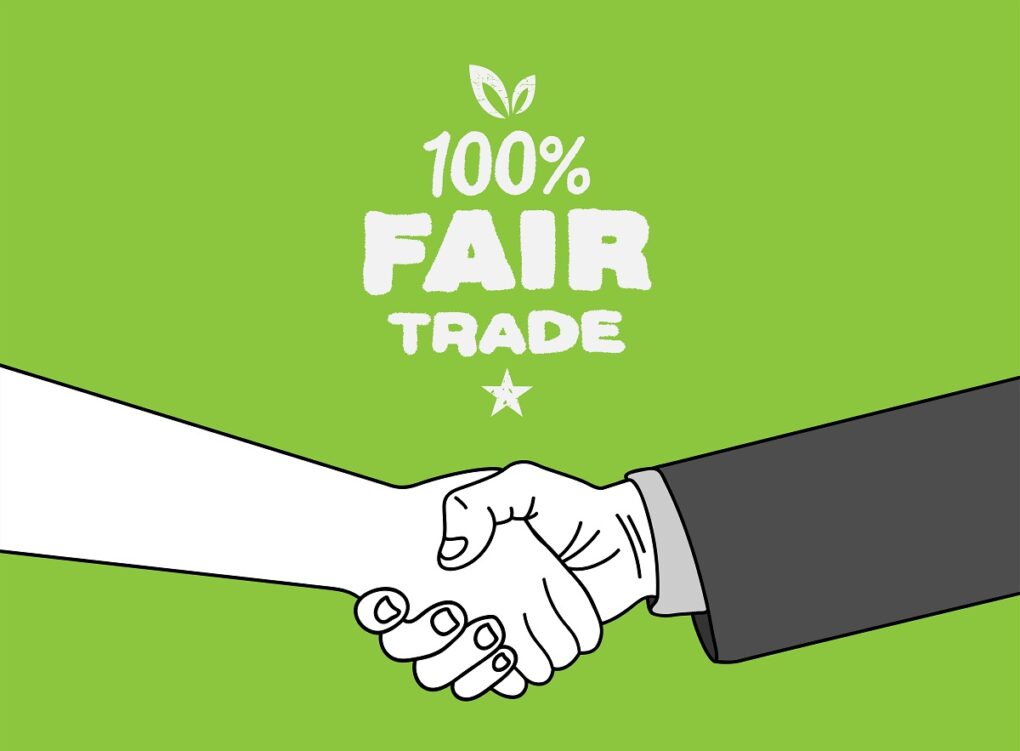
Read chapter 8. After studying this chapter, are you more likely or less likely to buy fair trade coffee? Is there another way of achieving the objectives of improving the lives of developing-country farmers and producers than the Fair Trade approach? Describe at least one option. Why do consumers buy Fair Trade products? List a few reasons and analyze each of them.
Introduction
Corporate social responsibility has become an increasingly important issue in the global economy. One of the areas where this is most evident is in the production and consumption of coffee. In Chapter 8 of the book “Good Corporation, Bad Corporation: Corporate Social Responsibility in the Global Economy,” Jimenez and Pulos explore the concept of fair trade and its impact on developing-country farmers and producers. This paper will examine the chapter and answer three questions related to fair trade coffee: whether the reading makes the author more or less likely to buy fair trade coffee, if there are other ways to improve the lives of farmers and producers, and why consumers choose to buy fair trade products. By exploring these questions, we can gain a better understanding of fair trade and its role in promoting corporate social responsibility in the global economy.
Body
After studying this chapter, are you more likely or less likely to buy fair trade coffee? Why or why not?
After completing this reading assignment, I started thinking that buying fair trade coffee is a way to support developing-country farmers and producers by ensuring they receive fair prices for their products. This can help improve their standard of living and promote sustainable agriculture practices. Fair trade certification ensures that environmental and labor standards are met during the production process, which can help reduce the negative impact of coffee production on the environment and ensure that workers are treated fairly (Jimenez & Pulos, n.d.). Furthermore, fair trade organizations often reinvest a portion of their profits into community development projects, such as education and healthcare initiatives.
While fair trade coffee may be more expensive than conventionally produced coffee, consumers can feel good about their purchase knowing that they are supporting ethical and sustainable practices. Additionally, fair trade coffee can offer unique flavors and qualities that are not found in conventional coffee (Jimenez & Pulos, n.d.). Therefore, if one values social responsibility and sustainability, they may be more likely to buy fair trade coffee after studying this chapter. By supporting fair trade practices, consumers can make a positive impact on the world while enjoying a delicious cup of coffee.
Is there another way of achieving the objectives of improving the lives of developing-country farmers and producers than the Fair Trade approach? Describe at least one option.
Yes, there are other ways of achieving the objectives of improving the lives of developing-country farmers and producers than the Fair Trade approach. One option is to promote sustainable agriculture practices that focus on environmental, social, and economic sustainability (Wandzel, n.d.). This approach involves supporting small-scale farmers and local food systems, encouraging biodiversity and conservation, and promoting fair labor practices. Additionally, governments can provide subsidies and technical assistance to small-scale farmers to improve their productivity and competitiveness in the global market. Another option is to establish direct trade relationships between buyers and producers, which can help to reduce intermediaries and increase the income of farmers. This approach also allows for greater transparency and accountability in the supply chain, which can help to ensure that farmers receive fair prices for their products (Wandzel, n.d.).
Why do consumers buy Fair Trade products? List a few reasons and analyze each of them.
Consumers buy Fair Trade products for several reasons, including:
- Ethical considerations: Many consumers choose Fair Trade products because they want to support ethical business practices and ensure that the producers of the products are treated fairly. They believe that Fair Trade provides a more just and equitable system of trade that benefits small-scale farmers and producers.
- Environmental concerns: Some consumers choose Fair Trade products because they are produced using sustainable and environmentally friendly practices. Fair Trade certification requires that producers adhere to strict environmental standards, which can help to reduce the environmental impact of farming and production.
- Quality: Fair Trade products are often of high quality, as they are produced using traditional methods and high-quality ingredients. Consumers who value quality may choose Fair Trade products for this reason.
- Social responsibility: Consumers who are socially conscious may choose Fair Trade products as a way to support social responsibility and community development. Fair Trade certification requires that producers invest in their communities and provide fair wages and working conditions for their employees.
- Health benefits: Some Fair Trade products, such as coffee and chocolate, are believed to have health benefits when consumed in moderation. Consumers who value health may choose Fair Trade products for this reason (The Ethical Gift Box, 2019).
Overall, consumers buy Fair Trade products for a variety of reasons, all of which are related to ethical, environmental, social, and health considerations. By choosing Fair Trade products, consumers can support sustainable and responsible business practices while also enjoying high-quality products.
Conclusion
In conclusion, the decision to buy Fair Trade products is driven by a variety of factors, including ethical considerations, environmental concerns, quality, social responsibility, and health benefits. By supporting Fair Trade, consumers can play an active role in promoting sustainable and responsible business practices while enjoying high-quality products. As more people become aware of the benefits of Fair Trade, it is likely that demand for these products will continue to grow, leading to a more just and equitable global trade system.
References
Jimenez G., Pulos E. (n.d.) Good Corporation, Bad Corporation: Corporate Social Responsibility in the Global Economy. Chapter 8. Retrieved from https://milnepublishing.geneseo.edu/good-corporation-bad-corporation/chapter/8-fair-trade/
The Ethical Gift Box. (2019, May 10). 7 Reasons Why We Should Buy Fair Trade? Retrieved from https://www.ethicalgiftbox.com/blogs/news/7-reasons-why-we-should-buy-fair-trade
Wandzel, M. (n.d.). BETTER FARMING: HOW TO SUPPORT FARMERS IN DEVELOPING COUNTRIES. Retrieved from https://borgenproject.org/support-farmers-in-developing-countries/
